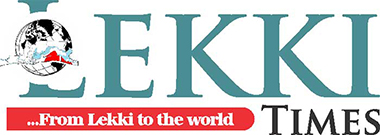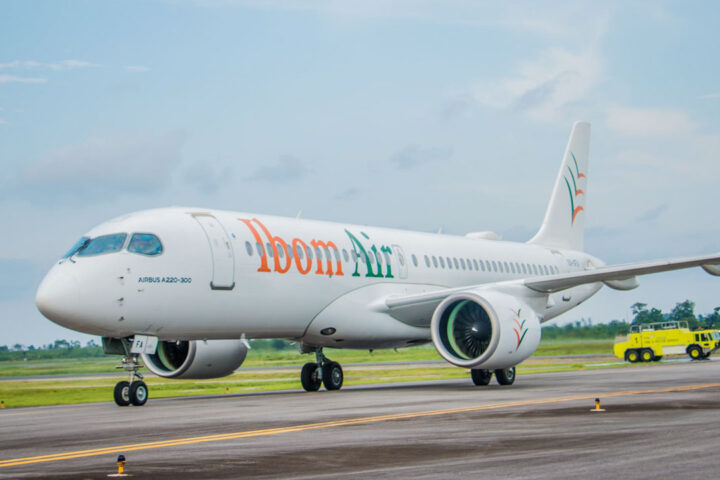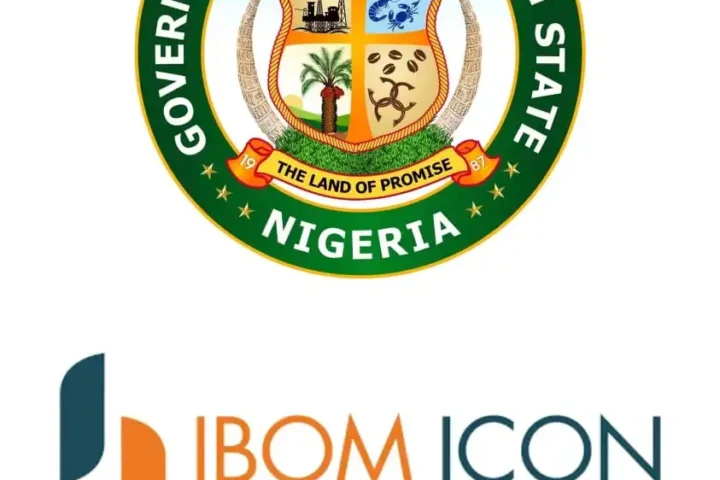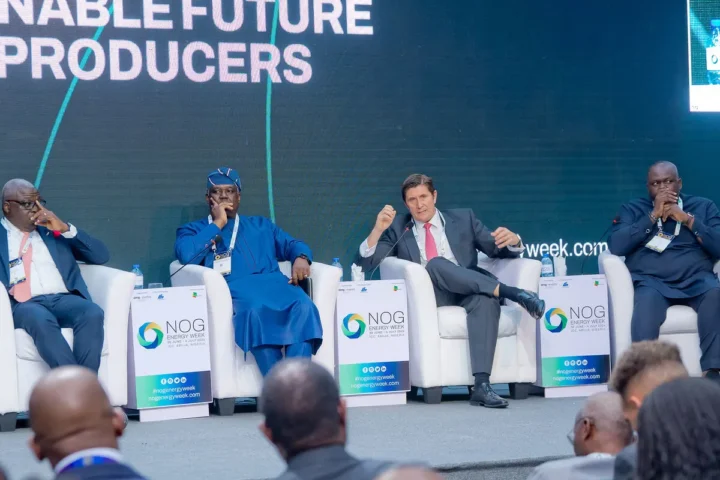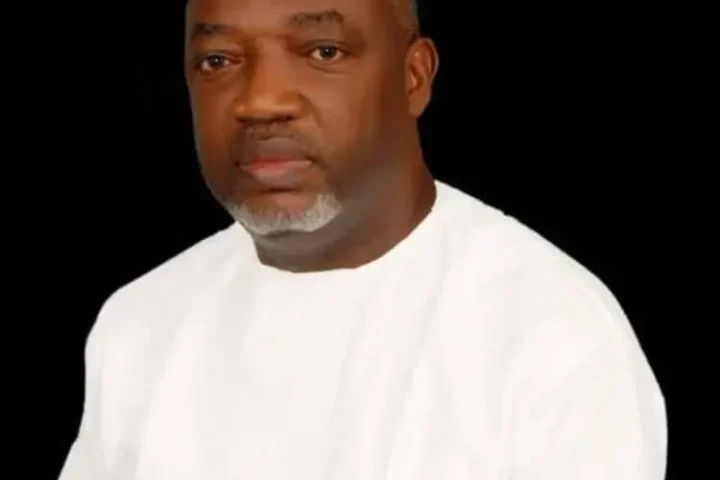The Governor, Mr Udom Emmanuel, is inching close to achieving a state-wide access to secondary healthcare and coverage for her citizens within three kilometers radius. His administration is renovating secondary health facilities across the state to reduce the distance between one functional facility and the next one, and make the facility closer to the people in every local government area. By closing the gap, the proximity between facilities is shorter, and the number of health personnel available per geographical area has increased.
Kufre Etuk and Abasifreke Effiong
The Akwa Ibom state government is addressing the challenge of rural access to secondary healthcare through a state-wide remodelling, renovation, reconstruction, re -equipping of hospitals. The government has undertaken health interventions – subsidizing surgeries and providing free medical services through community outreaches, in a bid to make health services accessible and affordable to her citizens.
The Governor, Mr Udom Emmanuel, is inching close to achieving a state-wide access to secondary healthcare and coverage for her citizens within three kilometers radius. His administration is renovating secondary health facilities across the state to reduce the distance between one functional facility and the next one, and make the facility closer to the people in every local government area. By closing the gap, the proximity between facilities is shorter, and the number of health personnel available per geographical area has increased.
So far, 18 out of the 42 secondary health facilities in the state have been remodeled, reconstructed, renovated and equipped with modern, state-of-the-art equipment and fitted with renewal source of electricity to power its theaters, blood and vaccine banks. Hitherto, some of these hospitals did not have consulting rooms, medical wards and surgical theatres. Of the 18 facilities renovated, 15 are general hospitals, two are cottage hospitals and one is a comprehensive primary healthcare centre. The facilities are, General Hospital, Etinan; Methodist General Hospital, Ituk Mbang; General Hospital, Ikot Okoro; General Hospital, Iquita Oron; Immanuel General Hospital, Eket; Psychiatric Hospital, Eket; Dental Centre, Eket; General Hospital, Awa; General Hospital, Ikot Ekpene; General Hospital, Ikot Abasi; General Hospital, Etim-Ekpo; General Hospital, Urueoffong; General Hospital, Ibiono; Leprosy Hospital, Ekpene Obom, Etinan; Mary Slessor Hospital, Itu; Cottage Hospital, Asong; Cottage Hospital, Ikot Eko Ibom, Onna; and Comprehensive Health center – Ikot Ekpene.
With the existing Cottage hospital in Ukana, Essien Udim local government area, completion of remodeling of the General Hospital and comprehensive health center, Ikot Ekpene as well as the Government Hospital, Ibiaku Ntok Okpo, Ikono; the government has brought residents of Essien Udim, Ikot Ekpene and Ikono local government areas under secondary health coverage within a maximum distance of four kilometers radius. Between Okopedi, Okobo and Iquita, Oron, the radius is shorter. In October 2022, the President, Nigerian Medical Association, NMA Dr. Ojinmah Uche, said, “in some rural areas, patients have to travel more than 30 kilometers from their abodes to get medical attention where available, thus making access to healthcare a rarity.” When Akwa Ibom state government completes the remodeling, renovation and re-equipping of the remaining 24 secondary health facilities and bring them up to speed with the 18 others it has already renovated, and construct their access roads, the proximity of these facilities will be shorter, making access easier and more closer to the people.
The state government has employed more medical personnel in the last five years to improve its doctor/patient ratio. Training and re-training, promotion of specialisation as well as welfare of medical personnel have been prioritized. Data obtained from the State Hospital Management Board show that each hospital has at least four medical doctors. Some of the big hospitals have up to six. In nearby states, reports have shown that there are hospitals that do not have a single doctor. Aside approving the employment of 25 more doctors and consultants and 100 nurses in 2019, Governor Emmanuel brought a consortium, Union Medicals from North Carolina, United States of America, to train medical workers in the state. On welfare, medical doctors employed by the state are the highest paid by any state in Nigeria, Chairman, Nigerian Medical Association, Akwa Ibom State chapter, Dr. Ime Udoh, said in June 2021, while thanking the Governor during a courtesy. ‘Your Excellency’s approval of a Consolidated Medical Salary Scale, CONMES, places workers in the state government’s employ as highest paid in the country’, Udoh disclosed. The Governor had earlier approved the payment of the consolidated medical salaries owed the affected workers since 2014.
The government is subsidizing health services at the secondary level through the Akwa Ibom State Hospitals Management Board. The Board makes regular supply of medical consumables to all hospitals in the state to make services affordable. Last year, the state government offered subsidized surgical services for patients with hernia, appendicitis, etc., across all secondary health facilities. A father, Mr Etop Akpaette, whose child was operated of appendicitis at Cottage Hospital, Ikot EkoIbom, Onna local government area, said he paid N35,000 for the surgery. The surgery was successful and the child had since gone back to school. In private hospitals such surgery costs between N150,000 and N220,000.
In addition to this, the government offers free medical services regularly. In 2019, the State Hospital Management Board under the chairmanship of Dr. David Umoh, came up with what it called “medical revival”, a state-wide medical outreach which offered free medical services including medical consultations/drug prescriptions, laboratory investigation, free drugs, eye screening and donation of free eye glasses, public health talks, deworming, HIV counselling/testing and surgery, to residents of the state. The medical revival took place in federal constituency basis. During the exercise, 500 patients with cataracts cases received free services at the General Hospital, Ituk Mbang, Uruan local government area. In 2016, the wife of the Governor, Mrs Martha Udom Emmanuel, through her pet-project, the Family Empowerment and Youths Reorientation Programme (FEYReP) in conjunction with the Pro-Health International and the Akwa-Ibom State Association of Nigeria (AKISAN USA incorporated) sponsored free surgical outreach in Ikot Abasi local government area. The Chief Medical Superintendent of the Ikot Abasi General Hospital, Dr. Richard Akpabio, said that, “the free medical care addressed the health challenges of over 5,000 people.” Antenatal services for pregnant women and post-natal care for children below five years are literally free in health centers.
With so much that the state has done at the secondary healthcare level, sufficient attention is also needed at the primary level. An agency has already been created. The pioneer Board of the Akwa Ibom State Primary Healthcare Development Agency, AKSPHCDA, chaired by Dr. Martins Akpan, was inaugurated in September 2018. Achieving improved access to basic health services, controlling preventable diseases and ensuring universal health coverage should be the next big deal.
